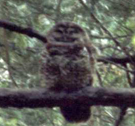Kenya’s Conservation Crisis: Set To Continue?
by Mike Norton-Griffiths
published in AFRICAN INDABA — Dedicated to the People and Wildlife of Africa.
Latest Edition (and full text) [here]
1977 was an important year for conservation in Kenya for it was then that sport hunting and all other consumptive utilization of wildlife were banned. It was also the year when the Kenya Rangeland Ecological Monitoring Unit (KREMU) began to monitor the numbers and distribution of livestock and wildlife throughout the 500,000 km2 of Kenya’s arid and semi-arid rangelands. So, perhaps uniquely, a major change in conservation policy coincided with a new capacity to monitor its effect and impact.
The monitoring results have been deeply disturbing, and by the mid ’90s a number of warnings were being issued about a major decline in wildlife right across Kenya’s rangelands, even in the most heavily used tourist areas. More recent analyses show that the rates of wildlife loss continue unchecked. Since 1977, Kenya has lost 60%- 70% of all its large wildlife.
The economic driving force behind these losses are the differential returns from agricultural, livestock and wildlife production. For most landowners, returns from agriculture are vastly greater than are those from livestock, while wildlife returns are so meager as to be uncompetitive with either. Furthermore, returns from wildlife, however small, are found only on 5% (23,000 km2) of the 500,000 km2 of rangelands where wildlife are found. No returns are made from wildlife anywhere else on Kenya’s rangelands so to the great majority of landowners wildlife is simply a cost that the Government expects them to bear.
Everything is loaded against landowners making economic returns from wildlife. The tourism cartels divert the great majority of revenues to the service side of the industry while the continuing ban on all consumptive utilization of wildlife further restricts landowners’ opportunities to generate revenues, especially away from the areas where tourist go. And all this is exacerbated by the deeply corrupt and technically incompetent Kenya Wildlife Service (KWS); by the conservation NGOs who concentrate too much on topical single issues rather than on the economics of wildlife production; and by community institutions who too often serve the interests of local elites rather than those of their ordinary members…
In the face of such a manifestly catastrophic failure in conservation policy the first effort to improve matters came on the initiative of a group of Kenyan MPs mainly from the pastoral areas, and in December 2004 the Kenyan Parliament passed an important amendment to the Wildlife Act. This amendment sought to make the KWS answerable to its Board of Trustees rather than to Government; to provide for greater participation on the Board by the landowners who actually produce wildlife; and to address the issue of compensation for the loss of life and damage to property by wildlife. This amendment came from the floor of the house, it went through all the required procedures, debates and public consultations, including with the Attorney General’s Office, and was properly voted on by the parliamentarians. Yet, following the deliberately misleading lobbying of the President by two anti-hunting American NGOs, the Humane Society and the International Fund for Animal Welfare (IFAW), the President of Kenya refused to sign the amended Wildlife Act into law. Clearly, these two, hugely wealthy, overseas NGOs had more influence on the President than did Kenya’s own parliamentarians…
IFAW represents at the most a million members, mainly in north America and Europe. Why should they determine Kenyan wildlife policy rather than Kenya’s own elected parliamentarians?
Such power without accountability, transparency and responsibility is a dangerous and heady mix. It is almost inevitable that IFAW will indeed succeed in perverting and derailing the course of the current wildlife policy review, and as a direct result Kenya will suffer further significant and irrevocable conservation losses. If IFAW were really interested in conserving wildlife in Kenya rather than simply maintaining an entrenched and minority position then it should be prepared to put its money where its mouth is. IFAW has an annual income of tens of millions of dollars a year and is perfectly able to establish a Trust Fund to meet the costs of Kenya’s pastoral landowners to maintain wildlife on their land. The sums involved are not trivial — and are orders of magnitude larger than simply hijacking a policy review process or “chatting up” a President.
If IFAW decline to take such an action then they should be held directly accountable by the Government of Kenya and be made to compensate Kenya for their unconstitutional imposition of inappropriate policies.
